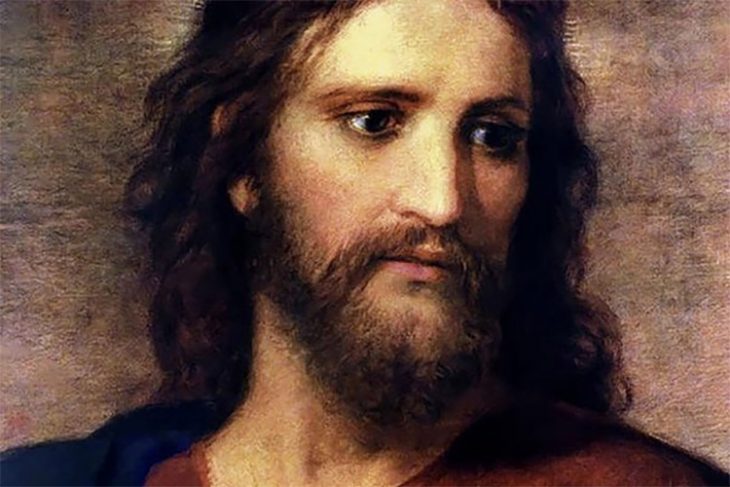The Biblical Evidence
We began this series into whether Jesus was truly deity or not by exploring Satan’s propaganda war against the truth that Jesus is God in the flesh. Now we’ll look at the biblical evidence.
With all the evidence in the Bible itself, if there is a professing Christian who says they do not believe Jesus was God in the flesh, they simply do not believe that the Bible is the Word of God.
With all the evidence in the #Bible itself, if there is a professing #Christian who says they do not believe #Jesus was #God in the flesh, they simply do not believe that the Bible is the Word of God. Click To TweetLet’s look at the witness of Bible prophecy itself. I could cite many verses, but I’m just going to use just one. Isaiah 7:14 prophesied that the Messiah will be called Immanuel, which means “God with us.” God with us? Jesus was the Messiah! He claimed to be the Messiah. The Scripture says He was the Messiah. Jesus, therefore, was “God with us.”
Let’s also take a look at the witness of the Trinity. A good example can be found in 2 Corinthians 13:14 where it says, “The grace of the Lord Jesus Christ, the love of God, and the fellowship of the Holy Spirit be with you.” There are many, many statements like that made throughout the New Testament that provide a witness of Jesus being a member of the Trinity.
Then there are the statements that Jesus Himself made about His divinity. For example, look at Luke 22:70 when the Sanhedrin Council asked Jesus point-blank, “Are you the Son of God?” He responded, “Yes, I am.” I don’t know how that could be any clearer.
Jesus also claimed many Messianic titles which He applied to Himself, titles that were recognized by the Jewish people as being Messianic titles. The Messiah would be God in the flesh. He referred to Himself as the Messiah, as the Son of Man, the Son of God, the Son of David, the King of the Jews, and the Prophet. All of these were Messianic titles which Jesus applied to Himself.
Consider when Jesus came into Jerusalem riding on a donkey. He pointed out that this act was a fulfillment of Bible prophecy concerning the Messiah — the One who would be God in the flesh.
And, consider Isaiah 61, where Jesus was in the synagogue in Nazareth and He turned over to Isaiah 61 and began to read it. He said after reading Isaiah 61, “Today this Scripture has been fulfilled in your hearing.” What did He just read? He had just read in Isaiah 61 that He was the Messiah, being full of the Spirit, and had come to proclaim the favorable year of the Lord. Then Jesus adds, “Today this Scripture has been fulfilled in your hearing.” That’s a claim of divinity on the part of Jesus.
Furthermore, Jesus claimed to have a very unique relationship with God the Father. When Jesus in John 8:19 said, “If you knew Me, you would know the Father also.” And, again in John 12:45, “He who beholds Me, beholds the One who sent me.” How in the world can you get around that? Jesus is claiming to be God in the flesh.
Jesus further witnessed His deity by forgiving people of their sins, which only God can do that. The Pharisees recognized that when He forgave people of their sins. In fact, they responded vehemently against Him asking, “Who do you think you are? God?” Well, yes, Jesus was and is.
Jesus also proved His deity by performing a host of miracles. The people themselves recognized that these miracles were such that they could only be performed by God.
Another biblical source of His divinity comes from the testimony of angels and demons. Yes, angels and demons! For example, when the angel Gabriel appeared to Mary to tell her that she would be the mother of the Messiah, he said to her in Luke 1, “He will be called the Son of the Most High.” That means her baby would be divine. And, when Jesus confronted demon-possessed people like the Gadarenes demoniac, one of the demons within that man cried out and pleaded, “What do I have to do with you, Jesus, the Son of the Most High?” Often the demons that Jesus would confront would confess Him as being the Son of God.
Then there is the witness of the Apostles themselves. In verse after verse after verse, the Apostles Peter, John, and Paul affirmed the divinity of Jesus. Here’s an example from Matthew 16:16 when Peter proclaimed, “You are the Messiah, the Son of the Living God.” The confession Peter made there was about Jesus’ divinity. And then there was Doubting Thomas who encountered Jesus after His resurrection, and he fell on his knees and cried out, “My Lord, and my God!” Jesus did not rebuke Thomas for saying that.
Whoever wrote the book of Hebrews affirmed the divinity of Jesus over and over from the beginning of the book until the end of the book. For example, in Hebrew 1:3 in the very opening of the book, the author said, “He, Jesus, is the radiance of God’s glory and the exact representation of His nature.”
Nor should we overlook the many biblical characters who proclaimed the deity of Jesus based on their interaction with Him, such as people like Simon and Anna. When baby Jesus was brought to the Temple to be dedicated, these two immediately recognized Jesus as being the gift of God to the world and of being God in the flesh. They picked Jesus up and thanked God for letting them live long enough to see the Messiah come.
Then there were people like the Magi who came from Persia to honor the Messiah shortly after Jesus’ birth. There was John the Baptist who proclaimed Jesus to be the Lamb of God. There was the centurion at the cross who said Jesus must have been the Son of God.”
Finally, there is the direct testimony of God Almighty Himself. For example, at the baptism of Jesus, there was a voice from Heaven that came and said, “This is my beloved Son in whom I am well pleased.” This testimony was, of course, repeated by God the Father to the Apostles who were there at the time of the transfiguration of Jesus when He showed them the glory that He had left behind in Heaven and the glory that He would one day reclaim.
As you can see from this voluminous biblical evidence, and I’ve only just touched the hem of it, the divinity of Jesus is not some Johnny-come-lately concept that was invented by a group of first-century superstitious peasants who desired to make a god out of a man. That, by the way, is the usual theme in all of these books that are written by so-called “Christian” theologians. They claim that Jesus’ followers were just ignorant fishermen, they weren’t educated, and they just simply decided long after Jesus died that they would make Him into a god. That’s nonsense!
The divinity of Jesus was foretold in Hebrew prophecy. It was affirmed in the life, teaching, and miracles of Jesus. It was confirmed by God the Father Himself. One would have to deny the Bible as the Word of God in order to deny the divinity of Jesus.
The divinity of #Jesus was foretold in Hebrew prophecy. It was affirmed in the life, teaching, and miracles of Jesus. It was confirmed by #God the Father Himself. Click To TweetIn the third and last segment of this look into whether Jesus was truly deity or not, we’ll explore the evidence of radically transformed lives.
Resource
David Reagan’s entire presentation, along with the other powerful ones made by Kelly Shackelford, Mike Gendron, Eric Barger, Mike Riddle and Ron Rhodes, are included in the Contending for the Faith 2019 Bible Conference video album. Get your copy today!








HELLO DR. DAVE REAGAN I WOULD LIKE TO KNOW ABOUT ARTIST STEPHSON GERTSON PORTRAITS JESUS CHRIST THANK YOU JESUS CHRIST LOVES YOU THE BEST BRENDALONGS77@GMAIL.COM
Any image (painting) of him cannot be true; there are so many and all different.